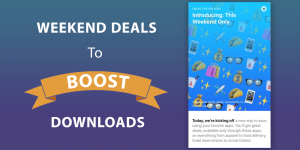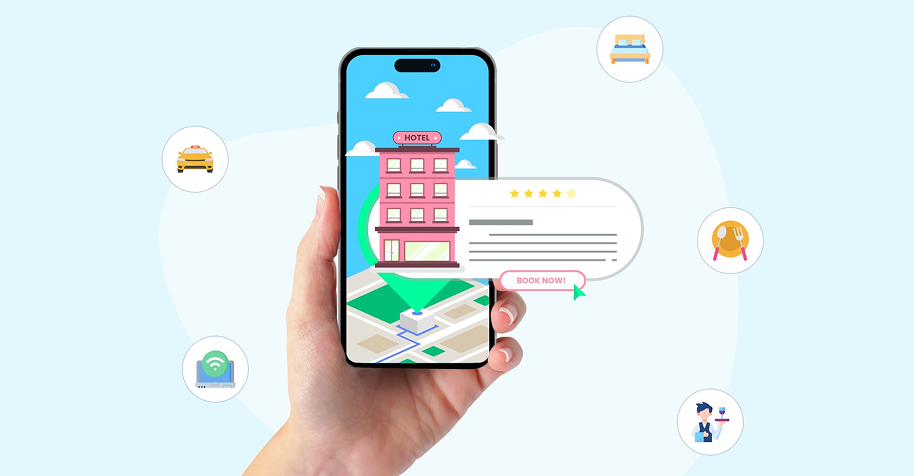
An effective hotel booking application must be easy, quick, and convenient. This blog highlights the features that hotel booking apps must have, so that travelers get an easy way to make hotel reservations and hotels get additional visibility and new reservations.
Hotel reservation apps have revolutionized the way individuals find and reserve their hotels. Instead of the phone calls to the hotels or browsing various travel websites, shoppers desire a quick, easy, and reliable method of booking hotels directly from their mobiles. Since the hospitality industry is becoming increasingly competitive, hotel reservation apps need not only to post rooms but also to go about the transition from searching to booking seamlessly. The right amenities not only make the process convenient for guests but also make hotels earn more customers
If you are thinking about creating a new or improving an existing hotel booking app, partnering with a professional Mobile App Development Company can make all the difference. In this informative guide, let’s explore the most essential features every hotel booking app must have.
Must-Have Features of a Hotel Booking App
1. Simple and Fast Search
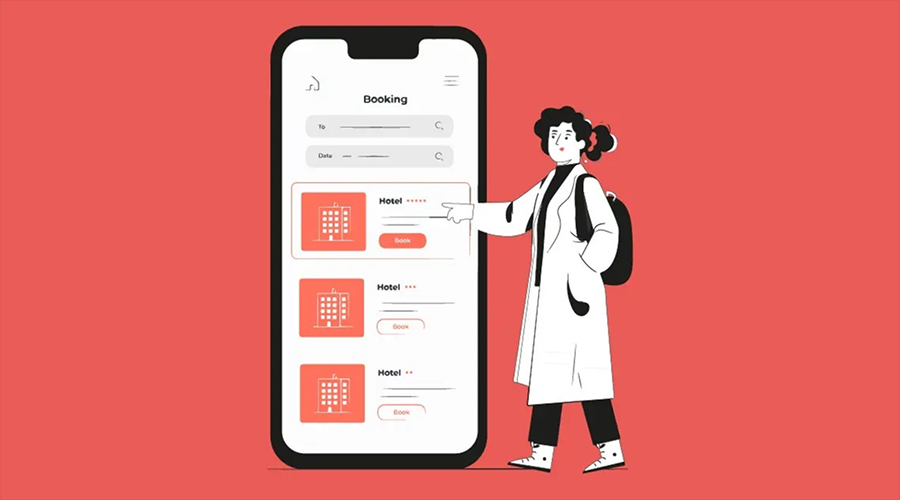
An effective hotel Booking app must have navigational tools to help users get hotels fast by filtering on an area, date, cost, and features. The search bar is supposed to be visible and immediately receptive. To make the process even less demanding, it can be supplemented with features, such as near me and popular areas. The more swiftly and intuitively the users can locate the item they desire, the greater the chances they will reach a reservation. The feature must be simple to pick up by first-time users, too.
2. Interactive Map View
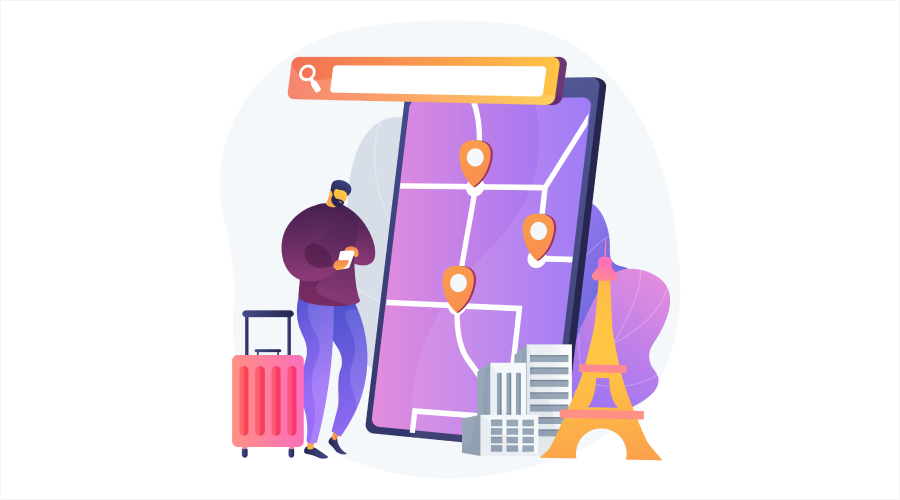
An interactive map will assist viewers in visualizing where hotels are located in real time. They will be able to visually verify which hotels can be found close to attractions, transport, or business areas rather than reading long addresses. On the map, users are able to zoom, navigate the neighborhoods, and filter hotels. This increases convenience, in addition to minimizing booking mistakes due to ambiguous locations. Such features are equally valuable when designing apps like a Transportation App, where location accuracy is critical.
3. Advanced Filters and Sorting
Not all travelers desire the same things; some might require luxury, some may need budget accommodation. Smart filters enable the user to filter the results based on price, star rating, amenities, and guest reviews. Sorting features such as lowest-priced first or highest-rated are useful ways to help a consumer locate the right match. This will help people save time and have a higher probability of locating hotels that will satisfy exactly what they are seeking. The more tailored the results are, the greater the user experience is. This concept of personalization and smart filtering is also applied in Online Restaurant Management Application solutions, ensuring customers get tailored choices.
4. Detailed Hotel Information
A user must never be confused with their booking. Apps must include all the information, including room types, photos, amenities, policies, and nearby attractions. Correct descriptions and quality pictures create confidence and minimise cancellations. Try to explore 360 tours so that the customers can see the entire hotel. Transparent details eliminate guesses, and the booking process becomes transparent, which makes users confident in their decision.
5. High-Quality Images and Videos
The influence of visuals on decision-making cannot be ignored. High-resolution images of the rooms, lobbies, restaurants, and facilities allow the users to see precisely what they are booking. A few short videos or virtual tours provide additional attraction, presenting the atmosphere and style of the hotel. The users can be repelled even by a great hotel with poor or unclear photos. Good visuals mean more bookings and the establishment of the right expectations among guests.
6. Easy and Secure Booking Process
A reservation procedure must be brief and straightforward, like choosing a room, making an input, and making a payment. Avoid unreasonable procedures that would lead to the event being dropped by the users. Put a progress bar so that the guests can know what stage of the process they are at. Safe payment gateways are necessary to guard sensitive information. The user will feel very confident in completing their booking when the process is easier and safer.
7. Multiple Payment Options
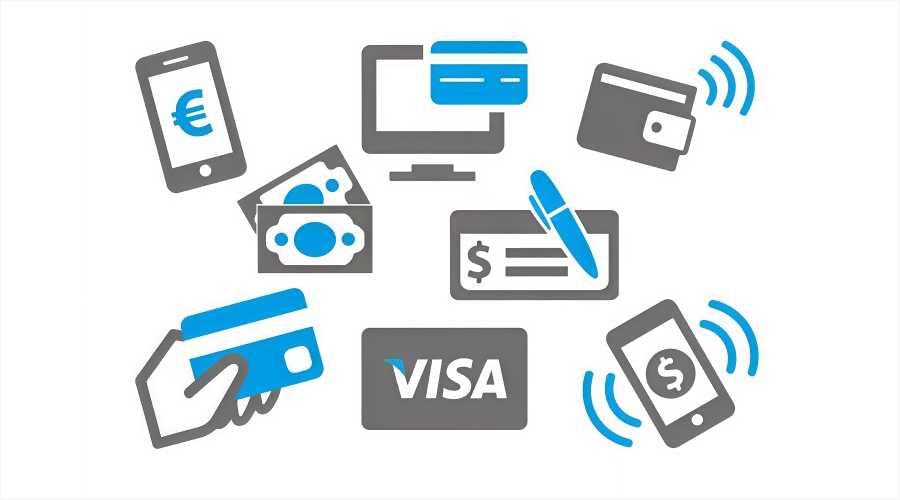
Not all users will wish to make their payment via a credit card. The ability to make payments in various ways, such as by debit cards, net banking, UPI, PayPal, and even on a pay-at-hotel basis, makes the app consumer-friendly. It can attract foreign tourists by supporting local payments in other countries. The more convenient the methods of payment, the larger your target market is. This flexibility is also a strong advantage in Milk Delivery App solutions, where recurring and varied payment preferences are common.
8. User Reviews and Ratings
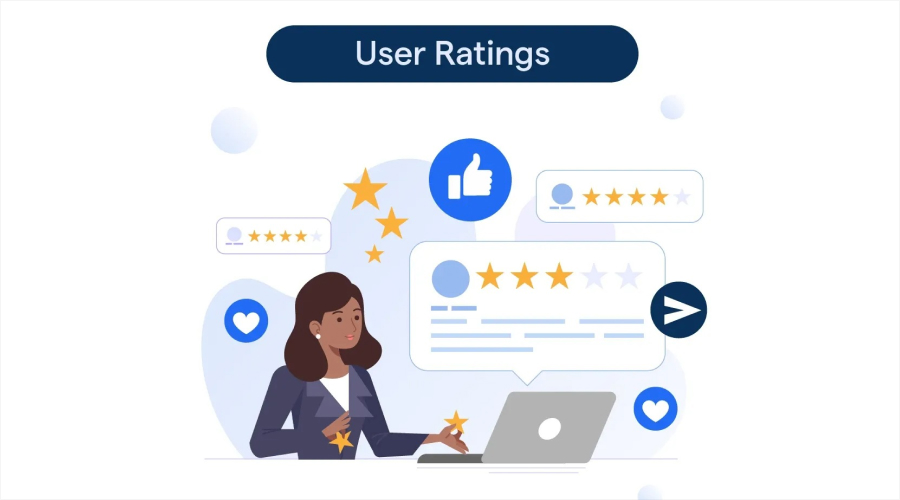
Travelers trust fellow travelers. Genuine guest review and ratings assists the user in deciding on which hotel to choose. Reviews must be readable, and the option to sort recent or highly rated reviews to be present. Reviews done by verified guests help develop trust and minimize reluctance to book. An efficient review procedure also motivates hotels to sustain quality, because they are aware that their ratings are published.
9. Push Notifications
Push notifications may inform customers of booking confirmations, future travel, and deals. They are also able to send personal recommendations based on previous searches or bookings. But the notifications must be relevant and not overwhelming to irritate the users. When utilized wisely, they can generate more interactions and even re-bookings.
10. Loyalty and Rewards Program
A reward system will encourage repeat business. Each reservation would accrue points for users that they can cash in the form of discounts or complimentary nights. Repeat customers ought to be treated with special privileges, i.e., early check-in or upgrades for free, to make them feel valued. The programs also help in creating long-term relationships and keeping users loyal to the app instead of going to another one.
11. In-App Chat Support
Before making a booking, travelers might ask questions such as the availability of their rooms or hotel facilities. Chat support within the application will enable users to get immediate responses via the customer service or the hotel employees. This feature improves certainty, and it might prevent booking churn. The inclusion of multilingual support is an added benefit to international travelers, and the app is more accommodating globally. Advanced support systems like these are often part of Travel Agency Software Development solutions to improve customer satisfaction.
12. Booking History and Management
The user must be able to view their old and new reservations in a single location. This is convenient to rebook if they desire to go back to a favorite hotel. A user must also be able to cancel, modify, or download invoices. Allowing users to have full control over their bookings enhances transparency and satisfaction.
13. Offline Access to Bookings
It is not always possible for travelers to access the internet, especially when abroad. A useful offline option showing booking information such as hotel address, phone number, and check-in time is valuable. This avoids problems in case the user fails to access the application because of a weak connection. It is a feature that does not take much but demonstrates that you care about a convenient user experience.
14. Multi-Language and Multi-Currency Support
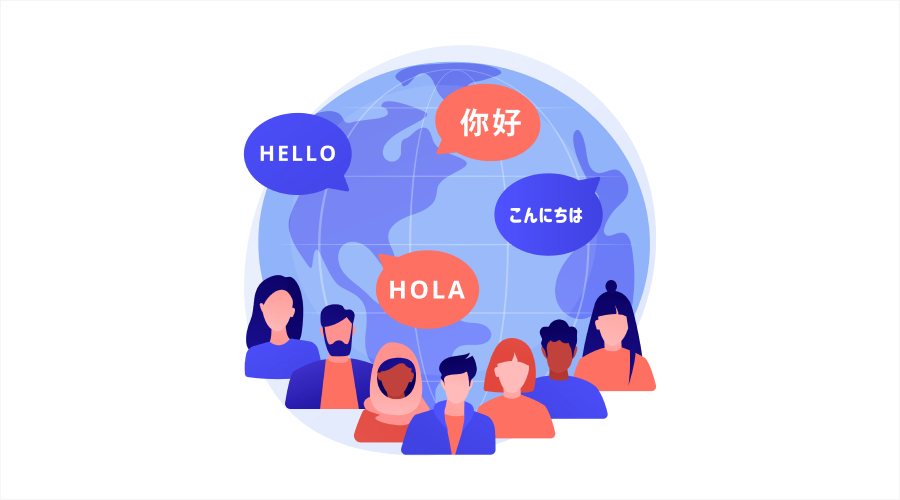
When it comes to international travellers, it is important to provide more languages and currencies. It eliminates confusion and opens the app to all persons of different jurisdictions. The conversion of currencies should be in real time, and the translations must be natural, not mechanical. Such an aspect can significantly enhance the coverage of the app in the international markets.
15. Special Offers and Deals Section
Everybody likes good deals. A special page with discounted prices, summer offers, etc., encourages bookings. Use can narrow the choice of deals by destination, travel dates, or hotel category. Limited-period offers generate urgency, inducing users to make a booking urgently. It is also possible to show app-only deals to increase downloads and retention.
Conclusion
The success of a hotel booking application will be based on its ability to support the demands of the travellers in a stress-free and pleasurable manner. From speed search and secure payments to loyalty rewards and immediate support, each of them contributes to the fact that the app is reliable and convenient to use. By including these essential features in the app design, one will not only increase the number of users but will also guarantee their recurring visits in the future.
Contact Us Today! In the current competitive environment in the hospitality industry, the most effective way to stand out is by providing convenience, trust, and value. Having these essential features makes your hotel booking app deliver a very high-quality experience that users will enjoy.






